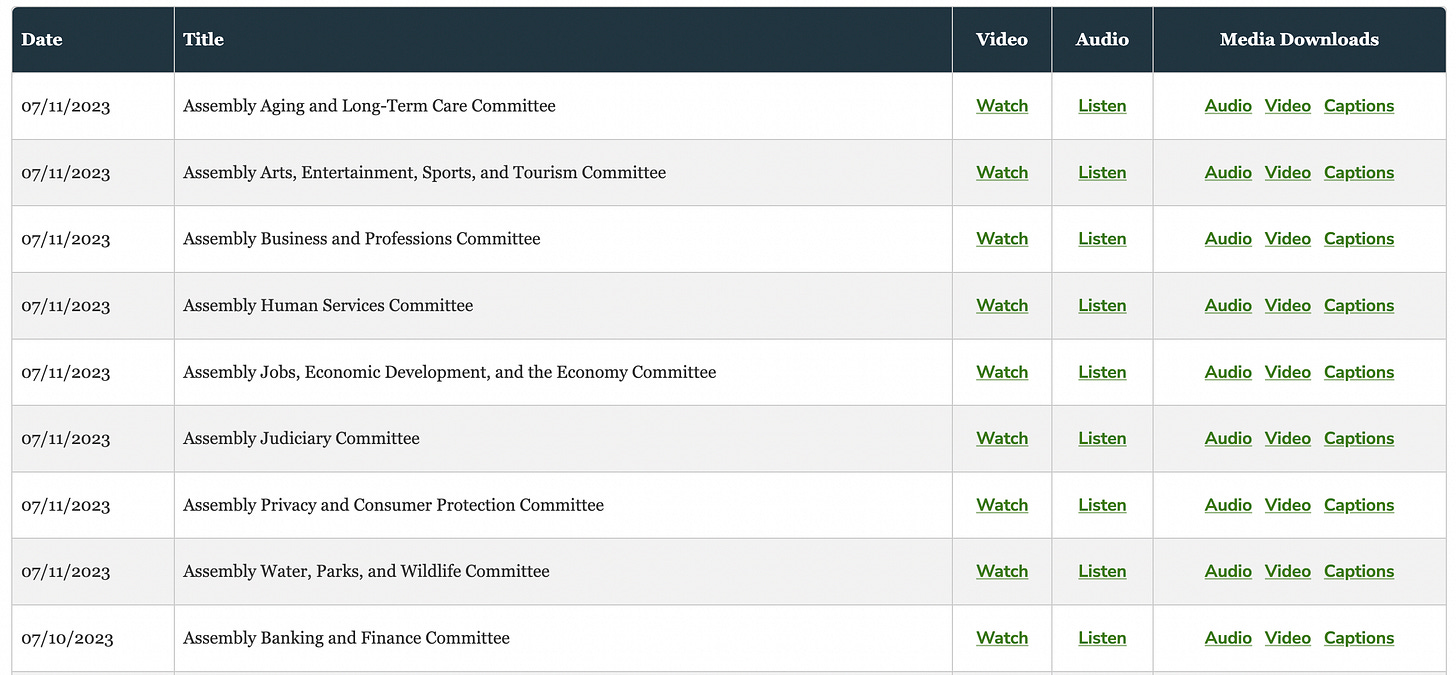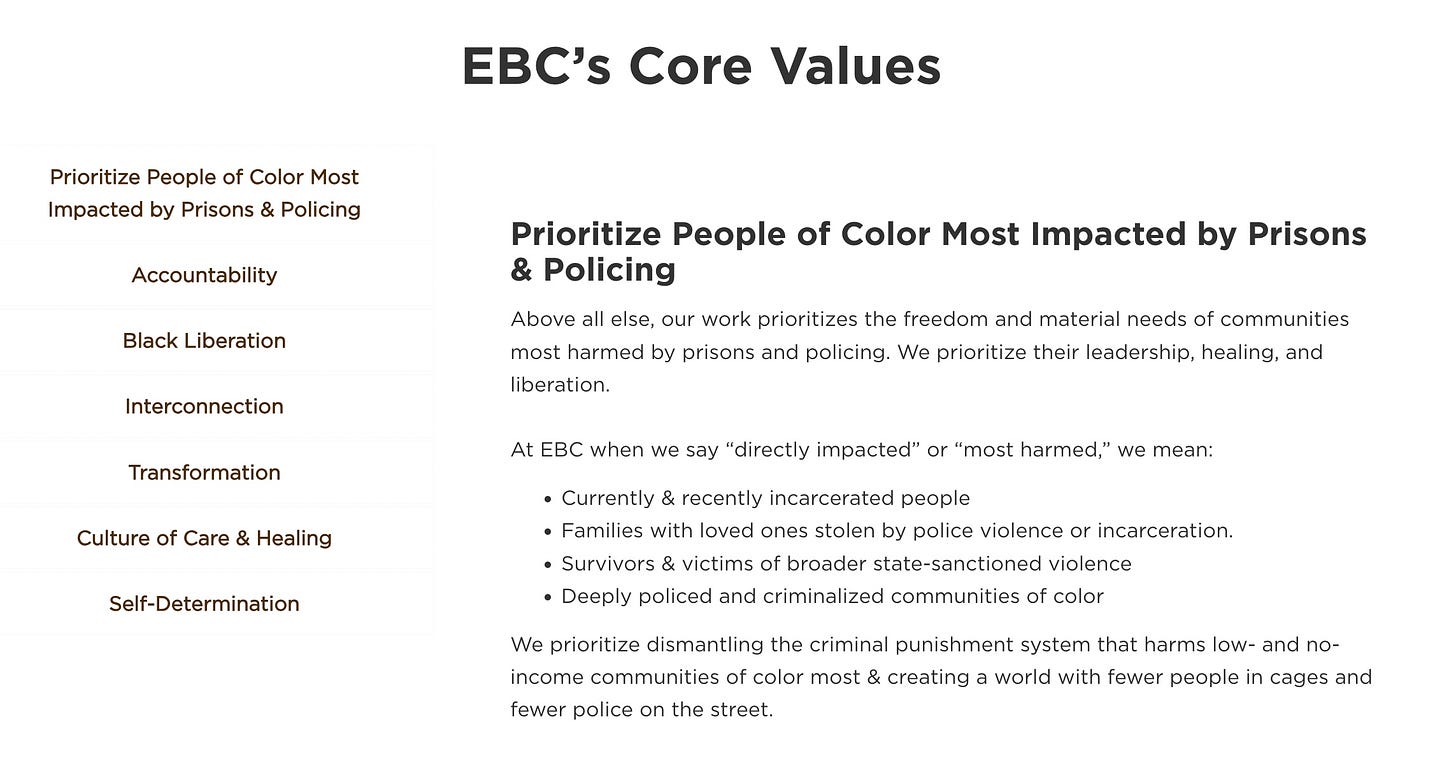Core Values: Punishing Sex Traffickers Is Racist
discovering why SB 14 died in committee
I’ve been trying to get at the reason California’s bill to classify the sexual trafficking of minors as a serious felony for sentencing purposes died in the Assembly Public Safety Committee today, but here’s what the media archive for committee hearings looks like as of 8:45 this evening:
Hmm, something is missing. If video of the hearing ever emerges, I’ll share it. But the answer is still out there, and you can read it yourself in the committee staff analysis of the bill. Click on this link, then click on “07/10/23 - Assembly Public Safety.” (The written analysis preceded the hearing by one day.) Or just click on this file:
After a preliminary discussion of current laws, the committee analysis focuses on opposition to the bill from the Ella Baker Center for Human Rights, an Oakland advocacy organization founded by Van Jones. Click on the “Our Values” tab at the Ella Baker Center’s website, and you’ll see this:
So a legislative analysis based on arguments from the Ella Baker Center begins at that starting line: “We prioritize dismantling the criminal punishment system” because it harms “communities of color.”
And that’s what the big argument against SB 14 was:
Argument in Opposition: According to the Ella Baker Center for Human Rights, “The Three Strikes model of sentencing enhancements is fundamentally flawed and should be repealed, not built upon. Three Strikes is ineffective in preventing crime or protecting our communities. It does not make victims whole or provide them with the healing that they need and deserve. Three Strikes has been proven to be applied in a manner that punishes Black, Latinx, and Indigenous people more severely than white people who commit similar acts.
California Democrats killed SB 14 in committee because of a core opposition to Three Strikes laws, on racial equity grounds. A social media post this afternoon from the bill’s author, Senator Shannon Grove, hints at this reasoning by blaming the “stubborn and misguided objection to any penalty increase regardless of how heinous the crime.”
There are other arguments in the committee analysis, and you can read them all yourself by clicking on the link above. Committee counsel argued, for example, that the sex trafficking of minors is already “punishable by up to 12 years in prison,” with the possibility of sentencing enhancements for “force, fear, fraud, deceit, coercion, violence, duress, menace, or threat of unlawful injury to the victim or to another person.”
Under California’s current parole rules, explained here, a person sentenced to twelve years in prison can expect to be released on parole, in many circumstances, after six years. But a person convicted on sex trafficking charges also has a good chance of being convicted on other charges that carry Three Strikes eligibility, such as kidnapping, so traffickers still have a good chance of serving long sentences. Still, SB 14 would have threatened traffickers with a greater chance of more time in prison, or the Ella Baker Center wouldn’t have bothered to oppose it.
As for keeping people in prison longer, the Ella Baker Center noted that incarceration costs money, and so prevents “adequate investment in schools, jobs, mental health and other services that can prevent acts of violence.” Facing the question of what to do with people caught trafficking children for sex, they made a rice bowls argument for more social services funding. That choice reveals their core values more than their “Our Values” page.
But there it is. People who traffic children for commercial sex can’t be punished more severely because their sentences may “be applied in a manner that punishes Black, Latinx, and Indigenous people more severely than white people who commit similar acts.”
Stop being racist to sex traffickers, I guess.



The lie that penalties are disproportionately applied to black people has been disproven so many times that those repeating it aren't just uninformed, but intrinsically dishonest.
We saw Sound of Freedom today. Child traffickers should get the death penalty.